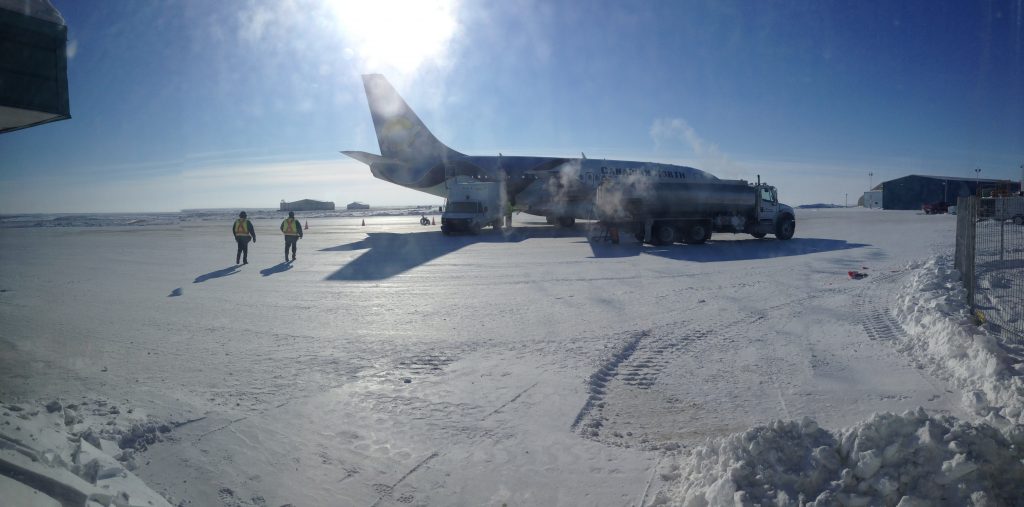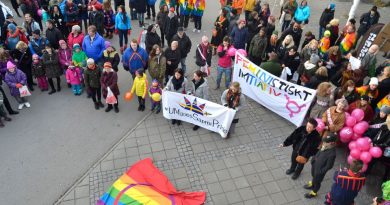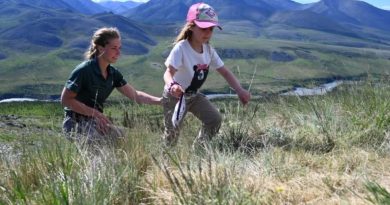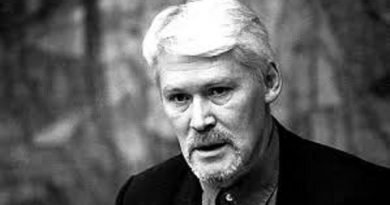Northern airlines in Canada raise concerns over new vaccine mandate on flights, impact on medical travel

By Oct. 30, with few exceptions, Canadians will need to provide proof of vaccination to fly
The federal mandate to provide proof of vaccination to fly by the end of the month has left some northern airlines wondering what it will mean for those living in remote communities where air transport is the only way in or out.
By Oct. 30, with few exceptions, Canadians will need to provide proof of vaccination to fly. It’s expected to create challenges in the North where air travel is often a necessity, not a luxury.
Kyle Newhook, the operations manager and a pilot with North-Wright Airways, said the new restrictions coming in place for air travellers should take that into account.
“The air is pretty much in some cases, the only way to get from place to place up in the Arctic,” he said. “We are extremely different from flying Air Canada or Westjet.”
Newhook said it can be stressful when the North “gets looped in” with southern mandates, mostly because of accessibility to resources. He said his company is still “gathering information on the types of challenges when it comes to mandatory vaccinations.”
“Our main interest is, and always will be, the protection of all of our passengers … we just know that this could cause some potential stress for some of our customers who are trying to travel.”
Newhook said people who need more information from the airline are welcome to reach out.
“We’re just like every other airline in the North that’s just receiving this information. We know that there’s a lot of people who are confused, angry, curious, they have questions,” he said.
No other way
Meanwhile, James Heidema, the chief operating officer for Northwestern Air Lease in Fort Smith, N.W.T., says the new restrictions for air travellers is the only way forward.
“The only way we’re going to get ahead of this illness is to have that herd immunity. I’m not sure there is any other way we can do that,” he said.
“This pandemic was not expected and we’re all reeling from it and trying to figure out what is the best procedure. The only thing we know about [it] at this point is to vaccinate and mask up.”
However, he did echo the concerns for some of the complications the new vaccine mandate may cause.
Impact on medical passengers
Among the issues, he said, is how it could potentially impede the people who travel for medical appointments to Edmonton or Yellowknife, for treatments like chemotherapy or blood transfusions.
“Some of those people, because of their illness, cannot be vaccinated,” he said. “But at this point, we have no indication from Transport Canada or the government, what those exceptions may be and how to document them. So we’re assuming at this point, that if you’re not vaccinated … we won’t allow you on board.”
He said if they do take people on board who are not vaccinated, they would have to maintain physical distancing, which could mean losing revenue.
“We’re flying 19-passenger aircraft, and we can’t afford to lose four to six seats,” he said.
Another issue is how having someone on board who is not vaccinated will affect the other passengers.
“What do we say to the passengers who are vaccinated? And do they wish to still fly?” he said.
“It’s a bit confusing, a bit messy right now. One hopes that when October 31st rolls around, and we’re actually in the situation where vaccination is required, that a number of these questions will be answered.”
Heidema said the airline has met with the health authority and that Northern Air Transport Association, a group that represents northern aircraft, is in conversation with the federal government.
‘These are the really difficult decisions’
Last week, the federal government said it would consider vaccine mandate exemptions for some remote Indigenous communities. Accommodations could include asking for a negative COVID-19 test, rather than proof of full vaccination.
Dana Tizya-Tramm, the chief of the Vuntut Gwichin First Nation in Yukon, said he wants exemptions to the federal government’s rule on proof of vaccination for his members.
While Yukon’s northern region — which includes Old Crow — has the highest vaccination rate in the territory, Tizya-Tramm said there’s a few community members who won’t get vaccinated, but they should be able to leave for medical appointments.
“If our community members are not vaccinated, I don’t believe that we should punish them for medical appointments for themselves or their kids. These are really important, and these are the really difficult decisions we have to make in this climate,” he said.
Tizya-Tramm says he hasn’t heard from the federal government about the new regulations.
-With files from Claudiane Samson and Anna Desmarais
Related stories from around the North:
Canada: Ottawa to consider vaccine mandate exemptions for some remote Indigenous communities, The Canadian Press
Greenland: Greenland lifts COVID-19 restrictions on direct travel to small communities, Eye on the Arctic
Iceland: Iceland to change COVID-19 border rules on October 1, Eye on the Arctic
United States: Rural Alaska at risk as COVID-19 surge swamps faraway hospitals, The Associated Press



